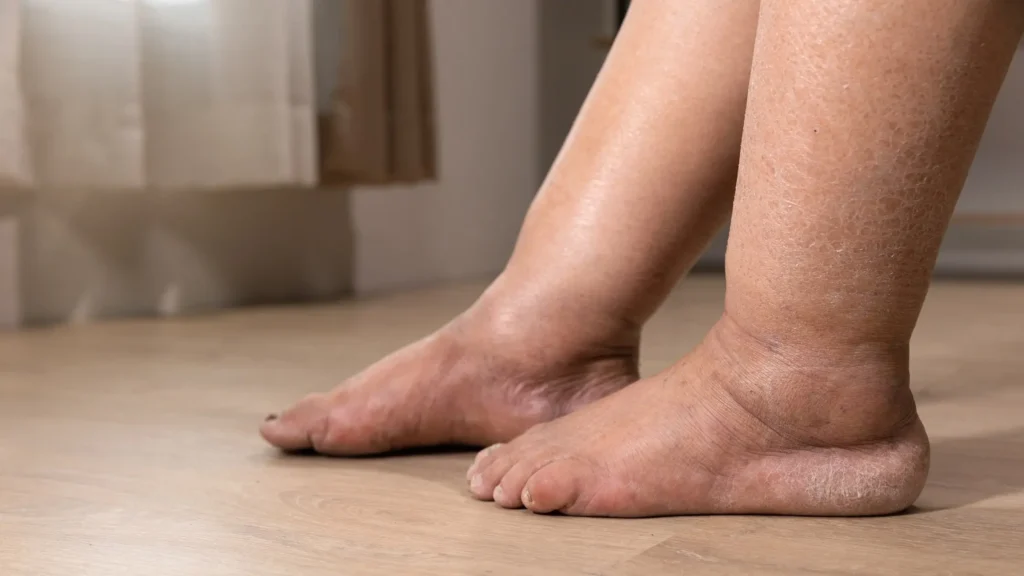As part of a broad approach to managing mental health, Xanax has established itself as a powerful tool in the arsenal against the symptoms of anxiety disorders. However, the path to this relief may not always be straightforward, as medications like Xanax can sometimes have unintended consequences. One such consequence that has garnered attention is water retention. The question that floats in the minds of many is, “Does Xanax cause water retention?
This blog post will delve into whether there is solid evidence to suggest that Xanax can indeed lead to water retention and, if so, how to manage this side effect. However, there is very little research conducted on this topic. Water retention may be related to some other medical condition that we will discuss below in the article.
What is Xanax?
Xanax, known generically as alprazolam, is a benzodiazepine that works by enhancing the effects of a natural chemical in the body called gamma-aminobutyric acid (GABA).
GABA is an inhibitory neurotransmitter, and when Xanax boosts its activity, it can produce a calming effect on the nervous system, often helping to reduce the heart rate and bodily tension associated with anxiety.
How is Water Retained in the Body?
Water retention occurs when there is excessive fluid buildup in the body’s circulatory system or tissues.
This can manifest as swelling in the feet and ankles and puffiness in the face, hands, or other parts of the body. The causes of edema are numerous, including:
- Prolonged standing or sitting
- High salt intake
- Certain medications
- Hormonal changes
- Heart or kidney disease
- Liver cirrhosis
- Venous insufficiency
Read Also: How Long Does Menopause Anxiety Last?

Does Xanax Cause Water Retention?
Anecdotal evidence and some patient reports suggest that Xanax may lead to water retention, but scientific research on the matter is sparse.
One potential reason for this link could be related to the potential for benzodiazepines like Xanax to cause systemic side effects, including changes in blood pressure regulation and the increased risk of developing heart problems due to their sedative effects.
However, more robust studies are needed to draw definitive conclusions.
That being said, patients who have experienced edema while taking Xanax or other benzodiazepines should report these symptoms to their healthcare provider.
It could be an indication of an underlying condition or reaction that requires further assessment and potential medication adjustments.
Also Read: Can You Take Amoxicillin on An Empty Stomach?
Common Side Effects of Xanax
Before we tackle the issue of water retention, it’s crucial to acknowledge that Xanax, like all medications, can produce a wide array of side effects.
Some of the more common ones include:
- Drowsiness
- Light-headedness
- Headache
- Fatigue
- Insomnia
- Memory problems
- Slurred speech
- Constipation
- Changes in libido

Managing Water Retention while on Xanax
If you are taking Xanax and suspect water retention, here are several strategies that may help manage this side effect:
Monitor Your Sodium Intake
High levels of sodium can lead to fluid retention. Be mindful of your diet and avoid processed foods, which are often high in salt.
Stay Active
Regular exercise can help prevent water retention by improving circulation. Simple activities such as walking or stretching can make a difference.
Elevate Your Legs
If you notice swelling, elevate your legs above the level of your heart for a period. This can assist in the return of blood to your heart.
Stay Hydrated
Paradoxically, staying well-hydrated can help flush out excess water and sodium from your body, reducing the likelihood of edema.
Review Medications with Your Doctor
If you’re on multiple medications, it’s possible that the combination, rather than Xanax alone, is contributing to water retention.
Try a Low-Sodium Diet
A diet lower in sodium and high in potassium may help counteract fluid retention.
Wear Support Stockings
Compression stockings can help prevent swelling by applying pressure to the lower legs, promoting better blood flow.
Addressing Patient Concerns
It’s common for those dealing with anxiety to be hyper-aware and sensitive to bodily sensations, which can sometimes lead to misconceptions about their health.
If you are concerned about the possibility of water retention while on Xanax, remember that open communication with your healthcare provider is essential.
They are the best resource for understanding the relationship between your anxiety medication and any physical symptoms you may experience.
Conclusion
The potential connection between Xanax and water retention is an important topic for anyone managing anxiety with this medication.
While more extensive research is necessary to confirm this relationship, patients should monitor for edema and, if present, work with their healthcare provider to identify and address the cause.
In the broader context of managing medication side effects, holistic approaches to mental and physical well-being can be beneficial.
This can include activities such as exercise, stress-reduction techniques, and maintaining a balanced diet, which may aid in mitigating side effects like water retention.
Understanding the nuances of medication side effects is a significant step toward a more informed approach to personal health.
In turn, this empowerment can foster a more effective partnership between the patient and healthcare provider, leading to better management of anxiety and any related concerns.
Q1: Does Xanax cause water retention?
While some patients have reported water retention while taking Xanax, scientific research on the matter is limited. Therefore, it’s not confirmed that Xanax directly causes water retention. If you notice signs of water retention, it’s important to consult with your healthcare provider.
Q2: What can I do to manage water retention while on Xanax?
There are several strategies you can employ to manage water retention, including monitoring your sodium intake, staying active, elevating your legs, staying hydrated, reviewing other medications with your doctor, trying a low-sodium diet, and wearing support stockings.
Q3: Should I stop taking Xanax if I suspect I have water retention?
You should not stop taking Xanax without first consulting your healthcare provider. If you suspect water retention, discuss your symptoms with your doctor, who may adjust your medication or suggest other strategies to manage the side effect.
Q4: Can other medications in combination with Xanax cause water retention?
It’s possible that a combination of medications, rather than Xanax alone, can contribute to water retention. Always review all medications you’re taking with your healthcare provider.
Q5: What are some common side effects of Xanax?
Common side effects of Xanax include drowsiness, light-headedness, headache, fatigue, insomnia, memory problems, slurred speech, constipation, and changes in libido.






